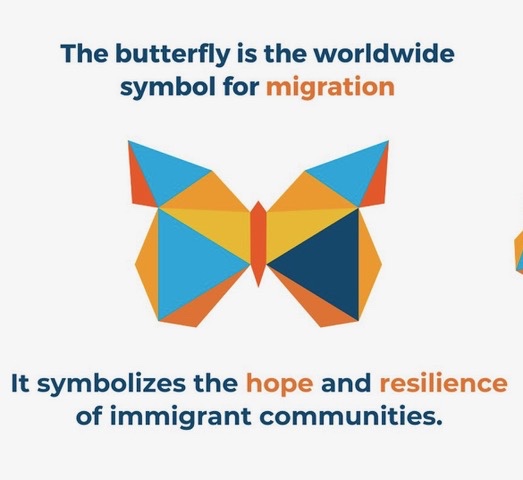Hispanic pastor and professor Robert Chao Romero writes about “migration as grace” to both the immigrant and the host country and community. It is easy to understand God’s grace to immigrants who can escape war, famine, religious or political persecution and arrive in a host country to start a new life. But what about migration as a blessing and grace to the host country and community? What does grace even mean in this context? The New Testament Greek word most often translated as grace is “charis,” it is consistently used to convey some aspect of divine favor, kindness, and blessing to humanity. The most common and popular definition of this uniquely Christian concept of grace is “God’s unmerited favor.”
Working with and among people from other cultures for the past 25 years has challenged me to examine many attitudes and perspectives that turned out to be a biased predisposition based on the influences of my native culture. For example, as an American with a time orientation, I’m easily annoyed when people are habitually late. I judged that it was plainly inconsiderate of others. However, other cultures are more oriented to the event or the relationship than to strict schedules and punctuality. Which is correct or better? It depends on the context.
My point is that I was challenged to consider my usual ways of viewing things. The same can be true with the issue of immigration, which can be especially polarizing these days due to the crisis at the southern border. While that is a particular situation that truly needs wisdom and leadership to remedy, it has also become a lightning rod for emotional responses that impact how we think about immigration and refugees. So, back to the question of “migration as grace” to the host country. What if, even amid this genuine crisis, we were to think about migration as “God’s unmerited favor” to our American communities and churches? I realize that is a radical reframing of the issue, but I think it is a fair question to ask within the context of God’s sovereignty in the migration of people (Acts 17:26-27).
Since Latino/Hispanic people are the face of the current immigration crisis at the southern border, and some are residing in the US illegally without being properly documented, they are easily scapegoated. However, things are not always as simple as they might appear. Is it just a case of breaking the law and paying the consequences? If so, what should be the just and fair consequence for their trespass? Pastor Juan Martinez asks that question in a thought-provoking manner. What is the just punishment for someone who enters your home, cleans it, prepares meals, cuts your grass, builds your deck, repairs the roof, and watches your kids?
The immigration crisis is complex. The trouble with complex problems is that we often apply simple solutions. For example, building a wall is easier than reforming immigration law. While the latter is more complicated to accomplish, it is more beneficial in the long run. We could craft laws similar to those in Canada for their workforce needs. They have a system that estimates the number of foreign workers needed each year and issues visas accordingly. They also have a system that allows for “express entry” of skilled workers. Lastly, they allow regions and provinces to recruit for local labor market needs.
The immigration crisis is not impossible to resolve. However, it would be naive to believe reasonable solutions will be enacted in today’s political climate. Meanwhile, what are we to do? By writing about these things, I hope to challenge readers to think about the issue from a biblical perspective and let that turn into prayerful action. As that great American baseball philosopher once said, “When you come to a fork in the road, take it.” That is, do something! God’s instructions to Israel are illuminating. “He defends the cause of the fatherless and the widow and loves the foreigner residing among you, giving them food and clothing. And you are to love those who are foreigners, for you yourselves were foreigners in Egypt” (Deut 10:18-19). Jesus reinforces this divine directive with this: “I was a stranger, and you invited me in” (Matt 25:35).

